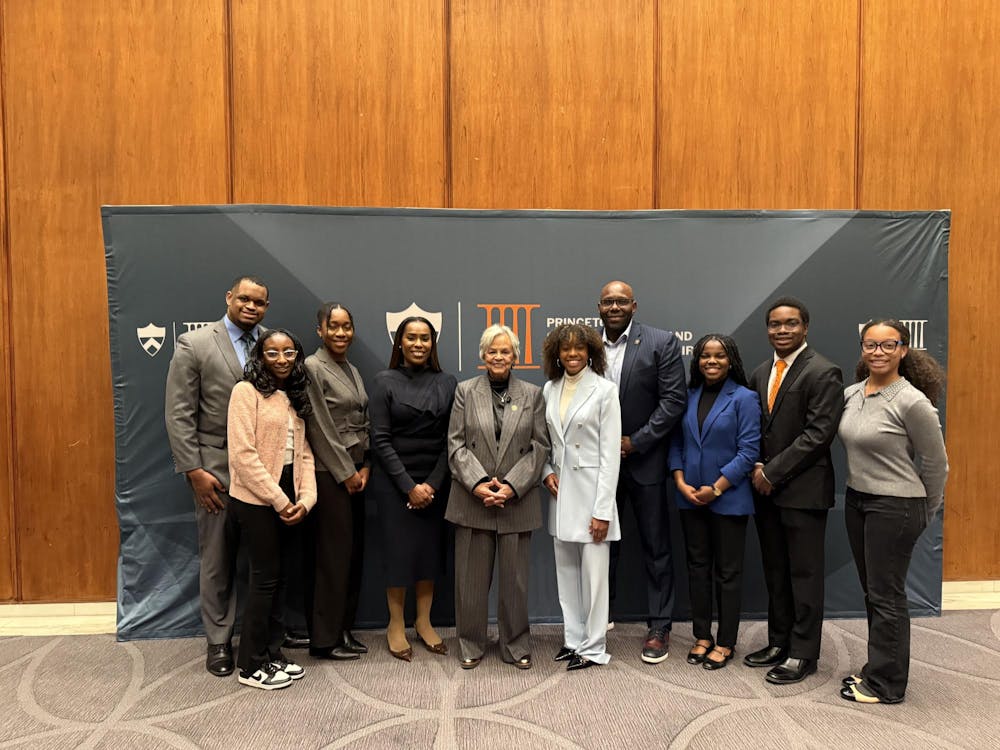Burnt toast, candles, practical jokers, smoke machines — almost anything seems to trigger alarms in campus buildings and eating clubs. The frequent howl of fire alarms has become so commonplace that the Princeton area's three volunteer fire companies often find themselves overextended by the number of calls, according to Princeton Fire Chief Henry Tamasi.
"Between false alarms, unintentional alarms, smoke machines setting off the alarms and pulled alarms, we go on several calls to the University [every] day," Tamasi said. "The guys are getting run down."
Receiving about 1,000 calls per year, Princeton's volunteer fire department is the busiest in Mercer County, sometimes responding to more than 14 alarms in a single night, according to Tamasi. A substantial portion of these calls are to the eating clubs and the University, he added.
The department receives fire calls from eating clubs and University buildings so frequently that it sends a smaller response team to those alarms. Of the Princeton Fire Department's seven fire trucks, one typically is sent to respond to alarms at the University, along with a fire marshal.
Tamasi said the high number of calls can often cause significant wear-and-tear on department equipment and staff. "We are putting half a million dollars of equipment and three or four guys' lives out there," Tamasi said. "The truck could hit a sheet of ice or get into an accident responding to a false alarm."
Unintentional triggerings
According to University Fire Marshal Bob Gregory, the department's smaller response is sufficient for most alarms at the University because the configuration of campus smoke detectors makes them prone to frequent unintentional triggerings.
"The smoke detectors are very sensitive," Gregory said. "They want to pick up a fire in its first stage when it is smoldering because that's the best chance [for students] to get out."
Gregory said when a fire alarm is triggered, Public Safety is also dispatched and generally arrives at the scene first. "Public Safety responds pretty quickly, within two to three minutes, and can usually take care of it," he said.

Gregory noted, however, that Public Safety is not dispatched to fire alarms at eating clubs because they are located off campus. "They have their own monitoring systems," he said.
"With those systems, an alarm goes off in the dispatch center as soon as the detector goes off," he said. Alarm companies notify Borough Police, which subsequently pages fire fighters.
As in University buildings, the fire detectors in eating clubs are also highly sensitive and are often set off unintentionally.
Tamasi said these frequent alarms are hard on his firefighters. "It gets upsetting because there are guys eating dinner with their wives or putting their kids to bed and they have to go out there for these false alarms," he said. "The guys get very upset about that. It's frustrating to have to go back to the same location, but we have to do it because they're our lives."

"You just want to say we are not coming back again," Tamasi added, "but we are not going to do that."
Eating clubs
Outgoing Cottage vice president Kevin Zeppernick '00 said he and other officers were aware the club's frequent false alarms could strain the fire department's resources, adding that the fire department officials have spoken to club members about the number of false alarms.
Though the alarms rarely indicate a potentially dangerous fire, Zeppernick said emergency services are able to respond quickly. He added that he believes the fire department response is adequate.
"The police are usually here within the first ten minutes," Zeppernick said. "The fire department is never actually dispatched immediately. Borough Police is dispatched first to evaluate the situation."
Fire detectors need to be sensitive because it does not take long for a first-stage fire to turn into a full-scale disaster, Gregory explained.
Tamasi said he and other fire department officials recognize the need for University and eating club alarms to be highly sensitive, but noted that the number of false alarms can get "out of control."
"You run into a cry-wolf syndrome," Gregory said. "While most of the people [in the buildings] go out, some stay because they don't think it's serious."
"It's scary," Tamasi said. "They don't smell any smoke and they assume the fire alarm is a false alarm so they are going to stay in their dorm room and just continue what they are doing."
"We are very concerned that there is going to be an actual fire and we are going to have to be rescuing people," he added.
Students said they viewed most fire alarms as merely an inconvenience. "It's kind of annoying when you're in the middle of napping or doing work because you generally think it's a drill and nothing serious," Karin Kin '02 said. "Most students take their time getting out of the building."







